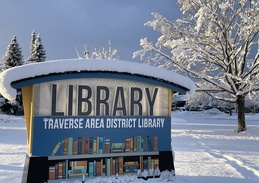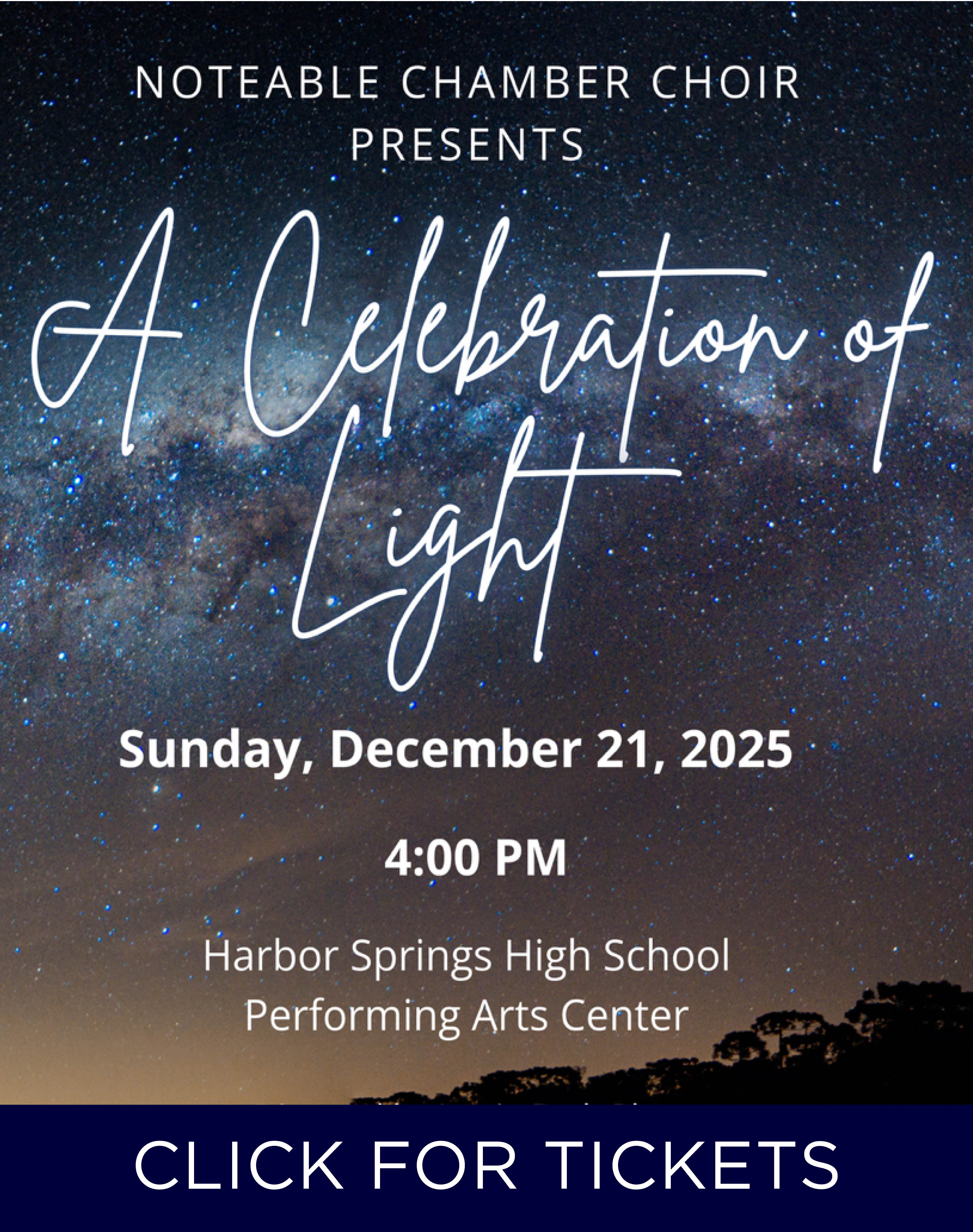
Great Lakes, Great Movies
10th annual Soo Film Festival puts Michigan filmmakers in the limelight
By Ren Brabenec | Sept. 2, 2023
Many northern Michigan residents are still feeling a bit forlorn about the loss of the Traverse City Film Festival. But in classic Yooper fashion, our neighbors to the north are more than willing to lend a hand and save the day. Case in point: This year’s Soo Film Festival, to be held in Sault Ste. Marie September 13-17, will feature more Michigan-made films than ever.
“We’re really excited for this year’s lineup,” says Soo Film Festival president Jason Markstrom. “Our mission has always been to showcase the work of independent and emerging filmmakers from the Great Lakes region while bringing movies back to downtown Sault Ste. Marie and the historic Soo Theatre. This year, we’re proud to put Sault Ste. Marie on the map as a place for Michiganders—and our Ontario friends across the river—to see films made by someone they might know, filmed in locations they’ve probably been to before.”
The Schedule
2023 marks the 10th annual Soo Film Festival, with films set to screen at the historic Soo Theatre and Bayliss Public Library. This year’s film lineup includes three narrative features, four documentary features, 37 narrative shorts, 12 documentary shorts, and 17 animations.
Films screened at the Bayliss are free of charge, while ticket prices are $7 general admission or $5 seniors and students. You can also spring for the $20 Daily Pass (admission to all blocks on a single day) or the $50 Festival Pass (admission to all films and shorts programs, all days). On Saturday, Sept. 16, after the last film of the day has been shown, Soo Film Fest organizers will host a light reception in the lobby of the theater for film-goers to get a chance to chat with filmmakers and ask questions.
While the volunteers who make up the festival’s organizing committee accepted film submissions from across the country and world, the focus this year was to include as many Michigan-made films as possible, like director JohnPaul Morris’s Quicksand, a film about co-best men Ray and Paul who, after losing their best friend’s ring days before the wedding, embark on a secret do-or-die adventure to reclaim it as they are forced to navigate questions about life, love, and how to escape a gang of murderers.
Quicksand—which just got the green light for an Apple TV+ and limited theater release—is an excellent example of what the Soo Film Festival is going for, as the entire Quicksand production team and most of the post-production team are Michiganders, and the film was shot and produced in Traverse City, Grand Rapids, and the Upper Peninsula.
“I wasn’t sure my first feature should be a comedy, but Quicksand was the film we had to make,” says Morris. “It would have haunted us not to do it. We wanted to make a movie about surviving your 20s, a feat that half our team had just accomplished and the other half was still undertaking. And just like your 20s, we wanted the film to be fun and unceasingly surprising.”
The Venue
Almost as interesting as the films is the venue they’ll be shown in. The historic Soo Theatre, built in 1930, is an iconic vaudeville theater undergoing meticulous restoration.
Over the years, the theater had fallen into disrepair and was closed in 2003. That same year, the Soo Theatre Project was formed to begin restoration efforts. Unlike other restoration projects, which generally rely on federal or state funding or outside money, the Soo Theatre’s restoration has been almost entirely locally funded.
“We’ve had more than 100 individual and corporate donors, almost all of them local, from the Eastern Upper Peninsula and from Sault Ste. Marie in particular,” says project coordinator Justin Knepper. “Right now, 90 percent of the Soo Theatre restoration has been funded not by state or federal grants or anything like that, but local, private, corporate, and organizational donors that are really making the project happen, which is amazing. It’s old-fashioned fundraising.”
Given that the project has been undertaken with the utmost care to restore the theater to its former glory, that means returning visitors who come back each year to see films at the festival get to see a slightly different theater each time, one which more closely resembles the original 1930s playhouse.
Some major renovations included replacing large portions of the interior, including holes in the lobby, painting walls, and sealing and restoring old plaster in the auditorium. Several structural and functional improvements have also been made, like a new roof and all-new wiring.
The latest project success was the completion of the theater’s iconic art deco marquee. On Feb. 24 of this year, Sault locals gathered at the theater for the ribbon cutting and to see the marquee light up for the first time.
“It took me right back to my childhood,” says Markstrom, who was present. “I hadn’t seen that marquee lit in decades. Restoring the marquee was just one of the many tasks the Soo Theatre Project has completed in recent years, but this one felt different. I guess there was something symbolic about it.”
The Future
“Great Lakes, Great Movies!” is a perfect tagline, and supporting the historic theater a noble goal, but there’s an even deeper message and mission behind the Soo Film Festival.
“Michigan has real potential to be the next ideal location for filmmakers to live and work, to create beautiful art right here in the Great Lakes State,” says Markstrom, referring to the opportunity for film incentives to return to Michigan.
In 2008, Gov. Jennifer Granholm signed legislation designed to grow the film industry in Michigan, setting the stage for hundreds of millions of dollars in private investment that created jobs for residents. “Michigan’s film incentive program is now the most aggressive in the nation,” she had said in a press release. However, those film incentives were removed in 2015 under Gov. Rick Snyder’s leadership.
Today, two bills are making their way through the Michigan Senate, referred to as the Michigan Multimedia Jobs Act, which would provide state tax credits to films and media made in Michigan by Michigan companies.
“What that means is that [the credits] can only be used to offset Michigan taxes, so only a Michigan company can benefit,” says Michigan Film Industry Association’s Legislative Action Committee Chair Alexander Page.
Markstrom hopes the legislation will pass. After all, if Atlanta can become the next Los Angeles in film production, why not Michigan? Markstrom knows the spark has already been lit; now it just needs some oxygen, and the volunteers and film enthusiasts working to put on this year’s Soo Film Festival are happy to provide the bellows.
Visit soofilmfestival.org to reserve tickets and view film selections and showtimes.
Trending

Winter Break at the Library
Trying to keep the kids busy while school is out? Head to the library! Dec. 22, take your 12+ tweens and teens to the Mesick… Read More >>
Umbo Is Coming...to The Little Fleet
Winter isn’t just coming—it’s already here. But if you want a break from the December blues, head to The L… Read More >>
GTB Starting the Year with Tradition
The Grand Traverse Band of Ottawa and Chippewa Indians hosts the Kchi Wiikwedong Anishinaabek Maawnjidowin Round Dance on Ja… Read More >>


